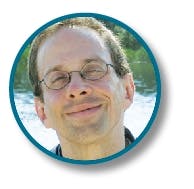“Hero” is a word that is tossed around loosely in American culture. But there are true heroes, and the word certainly applies to the six world-class researchers who died in the appalling missile attack on Malaysian Airlines Flight MH17 above eastern Ukraine on July 17, as they traveled to the AIDS 2014 conference in Melbourne, Australia. Former U.S. President Bill Clinton, addressing conference attendees a few days later, paid eloquent tribute to them: “The people we lost on that airplane gave their entire lives to the proposition that our common humanity matters more than our differences.” Their entire lives: that is, they did not just die to bring life-saving therapies to people with HIV/AIDS; they lived for that goal too, through the extraordinary effort and dedication to that cause that their colleagues and friends remembered in the aftermath of their senseless deaths.
This summer saw other heroes as well: the courageous healthcare professionals who have taken their place at the forefront of the battle against the tragic epidemic of Ebola hemorrhagic virus in West Africa. Sheik Omar Khan, a virologist who was the lead doctor in Sierra Leone’s battle against Ebola, was infected with the disease through his work and died on July 29. Not long before he was infected, Khan reportedly said, “Health workers are prone to the disease because we are the first port of call for somebody who is sickened by disease. Even with the full protective clothing you put on, you are at risk.” His words proved sadly prophetic.
Then, in August, two American healthcare workers, Kent Brantly, MD, and aid worker Nancy Writebol, became the face of the battle against Ebola for Americans. After they became infected working with patients in Liberia, they were flown back to the United States to receive care at Emory University Hospital in Atlanta. Extraordinary precautions were taken to ensure that they did not spread the disease to others. As this issue of MLO goes to press, both patients seem to be recovering.
The two Americans’ case, however, has raised thorny bioethical issues that need to be addressed. It was revealed that both were treated with a highly experimental drug, a mouse monoclonal antibody called ZMapp, developed by Mapp Biopharmaceutical, Inc., before they were evacuated from Africa. The drug had not undergone human trials, having been tested only on primates before being administered to Writebol and Brantly, with their informed consent. According to reports, their conditions improved significantly after they received this drug; however, the choice to become human guinea pigs was also heroic, and certainly there is no data to tell them or others what side effects this drug may cause.
Inevitably, the question came up: Why wasn’t this same drug offered to dying Africans? According to Mapp Biopharmaceutical, the company had only a few doses and hadn’t planned on ramping up production until the drug was tested and approved. The logistics of using an untested drug during a widespread outbreak would have been extremely daunting, and cross-cultural issues might make informed consent by the African populations problematic. The drug’s efficacy and safety in a broad population also still remains unknown.
It may well be that U.S. health officials prioritized the most aggressive possible treatment for the two infected Americans at least partly because they were Americans. And maybe that is all right. But people should be—and are—talking about whether it is all right, or not. And, should ZMapp and other drugs-in-development be provided to the many hundreds of other people infected with Ebola? And, if so, how can that project be accomplished in an underserved and resource-limited region? The epidemic continues, and so does the work of many unnamed heroes. So do the questions of policy and procedure that so often challenge modern health management.


